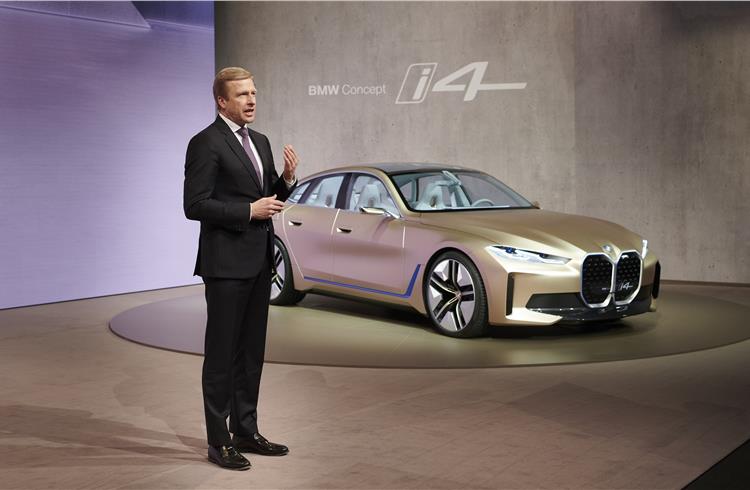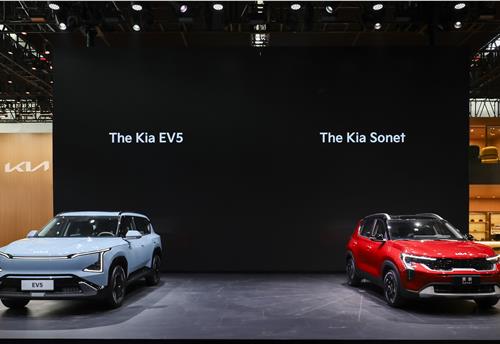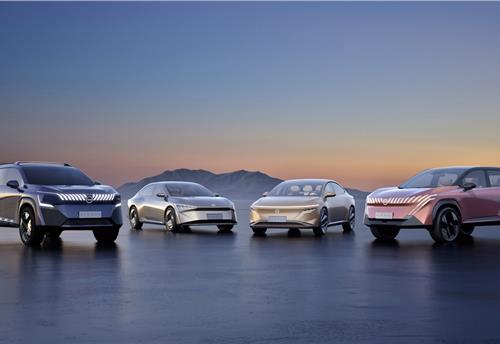BMW to invest 30 billion euros in tech, braces for Covid-19 impact
BMW Group expects subdued demand and revenue for 2020 viz-a-viz 2019. But will continue to focus on strong cashflow and invest in future technologies.
German luxury car maker, the BMW Group announced 30 billion euros (Rs 248,010 crore) investment programme for future technologies that will continue upto 2025. Given the supply chain disruptions due to the Covid-19 outbreak, the auto major says it is responding to the foreseeable development in demand on the global automobile markets by adjusting production volumes at an early stage and will make full use of the broad range of instruments available to it to maximise flexibility.
Speaking about how the company is bracing up to tackle the Covid-19 impact, the chairman of the BMW Board of Management, Oliver Zipse, said : “Solidarity and responsible action are called for. In our society it is the duty of the strong to protect the weak. The BMW Group therefore fully supports the measures aimed at containing the spread of coronavirus.”
It expects the coronavirus outbreak and the required containment measures to have a negative impact on delivery volumes in all major markets over the year 2020 as a whole. As a result, deliveries to customers worldwide in 2020 are expected to be significantly below the previous year's level. This will have a negative impact on automotive segment earnings, particularly in the first half of 2020.
Manfred Schoch, General Works Council chairman, emphasised that: “Our top priority is to protect our associates’ health, and safeguard their jobs and incomes. The General Works Council has agreed three important tools to make this possible: flexible BMW working time accounts, the option of working from home and the latest company regulation on short-time work. This stipulates that the net income of a pay-scale employee at BMW must amount to at least 93 percent of their usual sum. I am convinced that these three tools will allow us to navigate our staff safely through the corona crisis.”
Investing in sustainability
The BMW Group is strengthening performance with an array of new models – especially in segments where the rates of return are highest. One of the Group's targets is to double its sales volume in the luxury segment from 2018 to 2020.
Speaking on the Group’s future focus areas, Zipse added that“New technologies are key to the future of mobility. Up to 2025, we intend to invest more than 30 billion euros (Rs 248,010 crore) in research and development to underscore our position as an innovation leader. This also expresses our confidence for the future business development.”
The BMW Group says it set out quite early the new CO2 targets, which can be seen on the back its decision to systematically electrify the model range. Over the last eight years, 46,000 employees have received training in the field of electric mobility. In view of the growing importance of software know-how, the BMW Group founded the Critical Techworks IT joint venture in 2018 in order to secure the relevant expertise and skills.
At present, the BMW Group is one of the largest IT employers in Germany with 5,300 employees having been trained in the field of data analytics. Access to the raw materials needed to produce e-mobility has also been strategically secured.
The OEM says since the beginning of 2020, the BMW Group has been procuring the required cobalt and lithium directly and passing those resources on to the suppliers involved in manufacturing battery cells.
Improving financial strength, reducing development times
To be future-ready, the company says one of the key enablers for any organization would require to have a strong financial strength. A key aspect of this endeavour is to develop even faster digital processes and leaner structures. The Performance > NEXT programme is expected to generate efficiency savings in excess of 12 billion euros (Rs 99,204 crore) by end-2022. In addition, development times for new vehicle models will be reduced by as much as one third. On the product side, up to 50 percent of traditional drivetrain variants will be eliminated from 2021 onwards in the transition to creating enhanced, intelligent vehicle architectures – in favour of additional electrified drivetrains. It is in this area that the full impact of these measures will come into effect, particularly in the years after 2022.
The luxury brand is also working to reduce the CO2-emissions of its new car fleet and is confident towards its voluntary commitment to achieve the CO2 fleet target for its European new car registrations also this year. This is around 20 percent below last year’s target. One-third of that step can be achieved by further improvements to conventional drivetrain systems and two-thirds by the growth in the field of electrified vehicles.
By end-2021, the company intends to have more than one million vehicles with all-electric or plug-in hybrid drivetrains on the roads. At that stage, the BMW Group will offer five all-electric series production vehicles. Alongside the BMW i3, demand for which increased for the sixth year in succession, production of the all-electric MINI Cooper SE has been commenced at the Oxford plant in UK towards the end of 2019. The BMW iX3 will go into production this year at the plant in Shenyang, China, followed in 2021 by the BMW iNEXT in Dingolfing, Germany, and the BMW i4 at the Munich plant – all of which will be equipped with fifth-generation electric drivetrain technology.
By 2023, the BMW Group will already have 25 electrified models on the roads – more than half of them all-electric. The company expects to see a steep growth curve up to 2025, with sales of electrified vehicles growing on average by more than 30 percent per annum.
READ MORE
How coronavirus has hit the global auto industry: up-to-date timeline
Coronavirus will leave behind a global recession: Anand Mahindra
RELATED ARTICLES
Kia displays EV5 and Sonet SUVs for Chinese market
Kia has unveiled a number of key models and new technologies for Chinese customers at the 2024 Beijing International Aut...
Nissan targets growth in China, unveils four NEV concepts at Beijing Motor Show
The two EVs and two plug-in hybrids are a joint effort with Nissan’s local partner Dong Feng and aimed to better address...
Lamborghini unveils Urus SE ahead of Auto China 2024
Electric-only range of 60km helps reduce emissions by 80%.





 By Autocar Pro News Desk
By Autocar Pro News Desk
 18 Mar 2020
18 Mar 2020
 6887 Views
6887 Views









